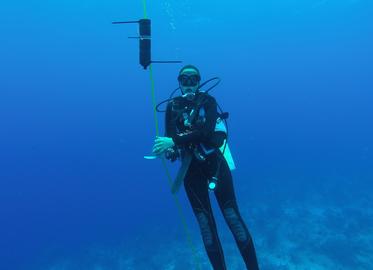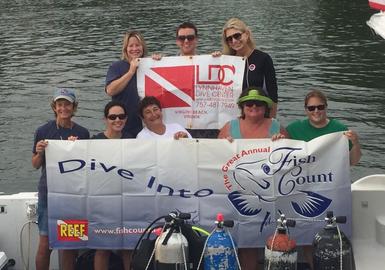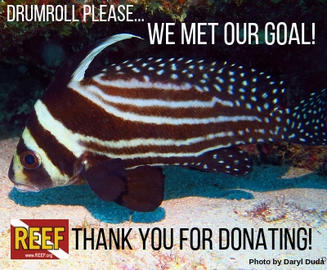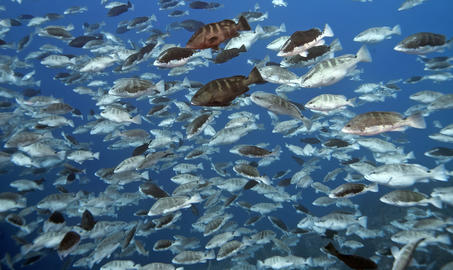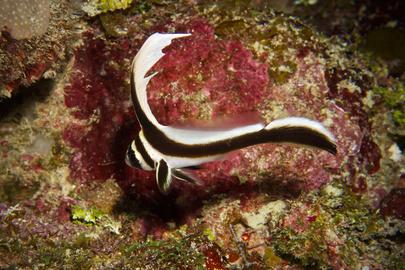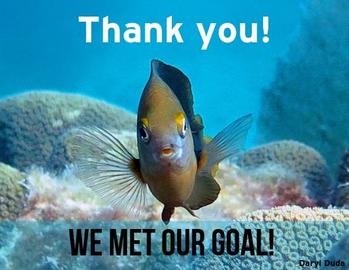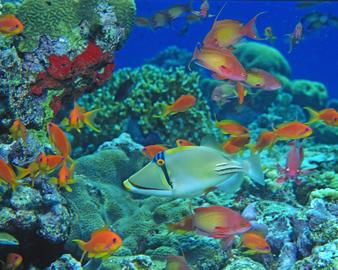Acoustic tagging is one of the most powerful marine conservation technologies currently available. REEF uses this technology in both the Grouper Moon Project and the Invasive Lionfish Program to help determine movement, ranges, behavior, and more. But tags and receivers are expensive! We need your help in furthering REEF's valuable marine conservation initiatives by supporting the purchase and implementation of these valuable tools. You can donate securely online at www.REEF.org/contribute. Read on to learn more about these high-tech tools.
Current search
Search found 430 items
- INVASIVE
REEF is continuing to lead the charge on combating invasive lionfish! The 2016 Lionfish Derby Series is just around the corner and it’s going to be bigger than ever.
REEF’s 2016 Great Annual Fish Count (GAFC) brought together experienced and beginner fish watchers to count fish (and invertebrate) populations. Beginning fish ID classes were held, and then students were able to use their new skills out in the water during organized GAFC events. Participating groups and shops this year were based in several of REEF's regions, including the TWA, SAS, NE, CAL and PNW regions. The biggest GAFC events this year were held in our NE and California regions.
This summer, we celebrated the 25th anniversary of REEF's cornerstone citizen science program, the Volunteer Fish Survey Project. Our annual summer fundraising campaign kicked off on World Oceans Day on June 8, and since then, thanks to the support of members like you, we were able to reach our goal of raising $60,000 to support our conservation programs!
Caroly’s Notes
Last month, the Grouper Moon Project - a highly successful conservation science collaboration between REEF and the Cayman Islands Department of Environment - wrapped up its 18th year of work in Little Cayman. Because all of the field work takes place during a few weeks around the winter full moons when the Nassau Grouper aggregate to spawn, the team prepares all year to ensure success for the big event. As we reported in last month’s e-News, because of this year's moon calendar, we sent research teams to Little Cayman in both January and February.
This month, REEF members worldwide are invited to participate in our first underwater photography contest! Members may submit one photo in each of six different categories including fish portrait, macro, invertebrates, REEF surveyor, lionfish/invasive species, and reefscape/habitat/environment. Submissions will be judged by three separate panels including professional photographers, REEF staff and board, and popular vote. Each judging panel will select a winning photo from each of the six categories, for a total of 18 winning photographs.
We are thrilled to share that we have reached our 2019 summer matching goal - to raise $70,000 to support REEF's citizen science, education, and research programs! So many REEF members stepped up to show their support for marine conservation, and we are so appreciative of your outstanding efforts. From all of us at REEF, thank you to everyone who contributed to our summer fundraising campaign, and a special thank you to the Curtis and Edith Munson Foundation, The Henry Foundation, and The Meyer Foundation who generously matched these gifts.
The holiday season is here, and that means cherished time with loved ones, plenty of celebrations, fun memories, and more. It can be tricky to choose the perfect holiday gift for your friends and family. We have the perfect solution!

